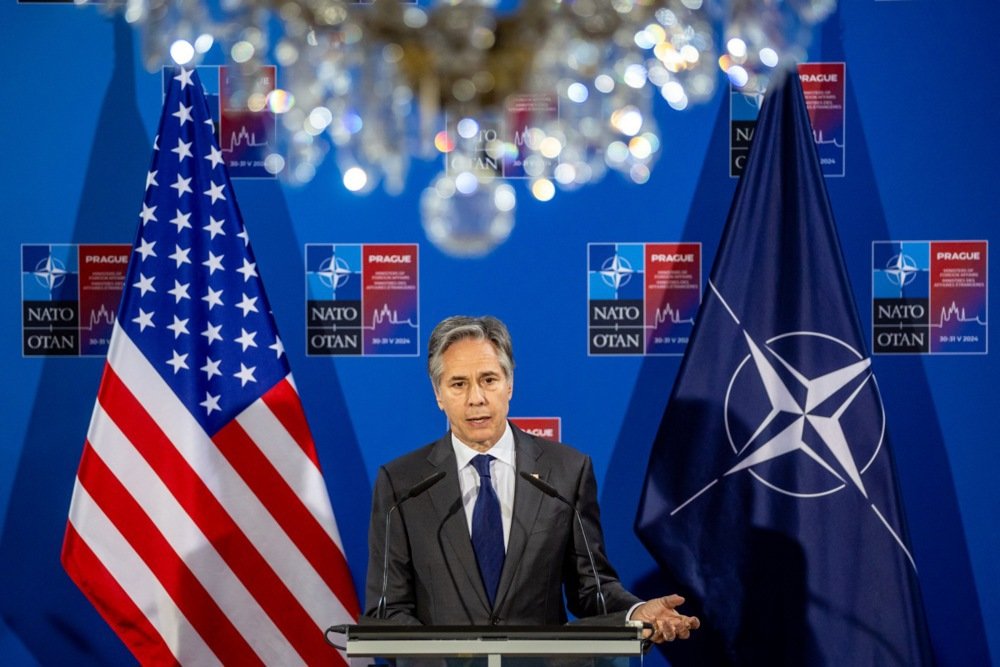
Antony Blinken. Photo: EPA-EFE/MARTIN DIVISEK
Western governments are grappling with how best to respond to an increasing number of Russian acts of sabotage in Europe, The Financial Times reported on Tuesday.
US Secretary of State Antony Blinken was quoted by the FT as saying last week that “virtually every ally” at a meeting of NATO foreign ministers in Prague had raised the issue of intensified Kremlin “hybrid attacks against frontline states” and that more and more cyber attacks were being mounted against NATO members, “continuing to spread disinformation”.
Latvia’s President Edgars Rinkēvičs told the FT that NATO allies were “trying to figure out” how to respond to the wave of sabotage short of invoking the military alliance’s mutual defence clause, Article 5, stressing that the alliance was “not going to fire missiles at Russia because of a rather small-scale incident”.
One measure that’s been floated would be restricting the freedom of movement Russian diplomats currently enjoy, prohibiting them from leaving the country in which they are accredited, the FT reported.
A more aggressive response might involve a campaign inside Russia focusing on the cost of the war in Ukraine. “If you are an average Russian, not a day should go by when you are not reminded of the huge number of casualties that Russian troops have suffered,” Eliot Cohen, a former US State Department adviser now at the Washington-based Center for Strategic and International Studies think tank, told the FT.
A senior Western military official told the FT that a deterrence strategy should contain credible retaliation but also avoid “unethical or illegal means of the kind that Russia uses”, while a Western defence adviser said that Russia had a highly developed lexicon for hybrid warfare and applied it systematically, whereas the West was so behind that it “lacks a vocabulary of what hybrid war means”.
On 5 May, the FT reported that European intelligence agencies had warned their governments that Russia was plotting acts of violent sabotage across the continent.
A German and a Russian were arrested in Bavaria in April, suspected of preparing attacks on military targets on behalf of foreign intelligence agencies.
The Baltic countries accused Russia of endangering civil aviation by interfering with GPS over the Baltic Sea in April, affecting tens of thousands of civilian flights in recent months and distorting signals used by boats in the region.
Bloomberg reported in May that Russian military intelligence had worked to exploit peace demonstrations in Germany to influence public opinion in the country and undermine support for Ukraine.
“The obvious conclusion is that there has been a real stepping up of Russian activity. … There is a lot going on,” Keir Giles, a senior consulting fellow at British think tank Chatham House, told the FT.
